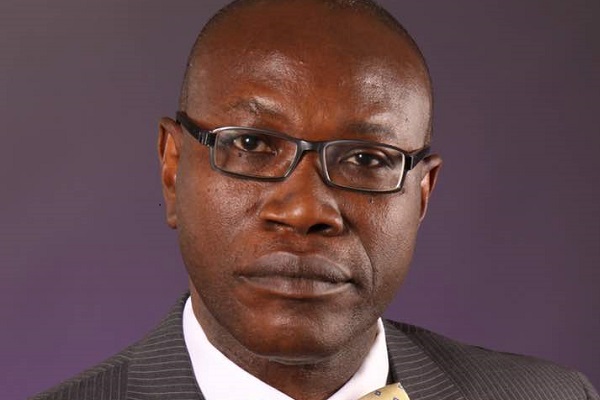When Professor Adesoji Adesugba was appointed the Managing Director of the Nigeria Export Processing Zones Authority (NEPZA) in June 2020, he did not waste time before he hit the ground running to reactivate some of the Nigeria’s free zones worth over $30 billion.
NEPZA has licensed over 40 zones spread across the country, with some contributing significantly to the Nigerian economy.
- PHOTOS: The houses EFCC seized from a Director in NSA office
- PHOTOS: Buhari celebrates Nigerian children
Some are however, at various stages of completion level, and are expected to rake in billions of dollars for the country in foreign direct investment (FDI), and also generate millions of direct and indirect jobs.
The active trade zones in the country, which are already contributing massively to the economic development of the country, include the Lagos Airline Service Zone, the Dangote Industries Free Zone (FZ), Lagos FZ, Lekki FZ and Nigeria Aviation Handling Company FZ.
Others are Eko Atlantic Snakes Island Integrated FZ, Centenary Economic City FZ, Tomaro FZ, Adamawa Sebore Farms FZ and Akwa Ibom ALSCON FZ.
The list also includes Calabar FZ, Kano FZ, Jigawa Maigatari Border FZ, Ogun Guandong FZ, among others.
In announcing President Muhammadu Buhari’s appointment of Adesugba as the new NEPZA MD, the Minister of Industry, Trade and Investment, Otunba Niyi Adebayo, had expressed confidence over the choice of Adesugba, saying that “his wealth of experience coupled with his academic exposure would add value to the attainment of NEPZA’s core mandate.”
Many industry stakeholders who were familiar with Adesugba’s track records had also applauded President Buhari’s decision to consider him fit for the job.
They had described him as being highly competent, saying his tenure would bring a very bright future for the free zones.
The stakeholders also believed that the Nigerian economy would be the greatest beneficiary of his anticipated visionary leadership.
Adesugba was mandated to pilot the affairs of the agency with transparency and open-door policy that would accelerate federal government’s target for economic zones across the country, especially in the area of job creation.
He was also described as an accomplished specialist in investment promotion and economic development, who was known for his proficiency in organisational development and institutional reforms.
Within this short period of his assumption of office, his reforms have enthroned a regime of transparency, and accountability at NEPZA, in addition to other achievements.
Adesugba has demonstrated in the past one year that the cap actually fits him and that President Buhari was actually not mistaken in his choice.
He has since eliminated the bureaucratic bottleneck that had characterised the otherwise simple process of doing business with NEPZA.
Under his leadership, NEPZA has aligned with the visions of President Muhammadu Buhari and Vice President Yemi Osinbajo, to enhance the ease of doing business in the FZs.
He has also taken deliberate steps to disable the monopoly created by some supposedly local investors managing some of the free zones.
Some of these local investors, who were afraid of foreign competitors, had created monopoly and made it difficult for foreign investors to bring in the much-needed investments.
Adesugba has also aligned his vision with the efforts of the Nigerian Ports Authority (NPA) to end all forms of monopoly and liberalise the operations in the free zones by opting to license more foreign investors.
The NPA had focused efforts at creating a level-playing field for investments to thrive by liberalising the free zones.
Adesugba has demonstrated the political will to improve on these efforts.
The fear expressed by reputable investors was that if the federal government failed to stop the monopoly in the FZs, new investments would not come into the zones, while upcoming projects meant to be executed in the zones would be executed outside the shores of Nigeria at the detriment of the Nigerian economy.
However, within one year of his appointment, Adesugba has reversed the ugly trend and repositioned the free zones for them to realise the federal government’s aspirations.
He has championed the successful resolution of some of the disputes in some of the zones.
There is also ongoing upgrade of the Kano Free Trade zone while licences are being issued for the proposed new free zones in Katsina, Jigawa, Kebbi, Kwara and Taraba states.
Due to the previous disputes in some of the free zones, which hindered inflow of foreign investments into the country, NEPZA under his watch, is to take over the registration of the zones directly and handle any disputes that may arise.
For instance, under his proposed reforms, disputes that may arise from free zone service fees will be resolved at the dispute resolution centre established within NEPZA, and manned by non-NEPZA employees.
Also with the strong support from the Federal Ministry of Industry, Trade and Investment (FMITI) under the able leadership of Otunba Niyi Adebayo, NEPZA is set to break the monopoly which has hindered the inflow of foreign investments into some of the free zones.
The Nigerian economy needs healthy competition to attract the needed investments and create jobs for the teeming youths.
One of the steps being considered by NEPZA to end this monopoly is the granting of operating licences to more operators, which has been applauded by industry stakeholders and other investors.
Adesugba’s reforms should therefore be sustained to attract foreign investments into Nigeria, create massive employment opportunities, increase Nigeria’s Gross Domestic Product (GDP) and boost the economy.
Ahmed Ibrahim writes from Abuja

 Join Daily Trust WhatsApp Community For Quick Access To News and Happenings Around You.
Join Daily Trust WhatsApp Community For Quick Access To News and Happenings Around You.

